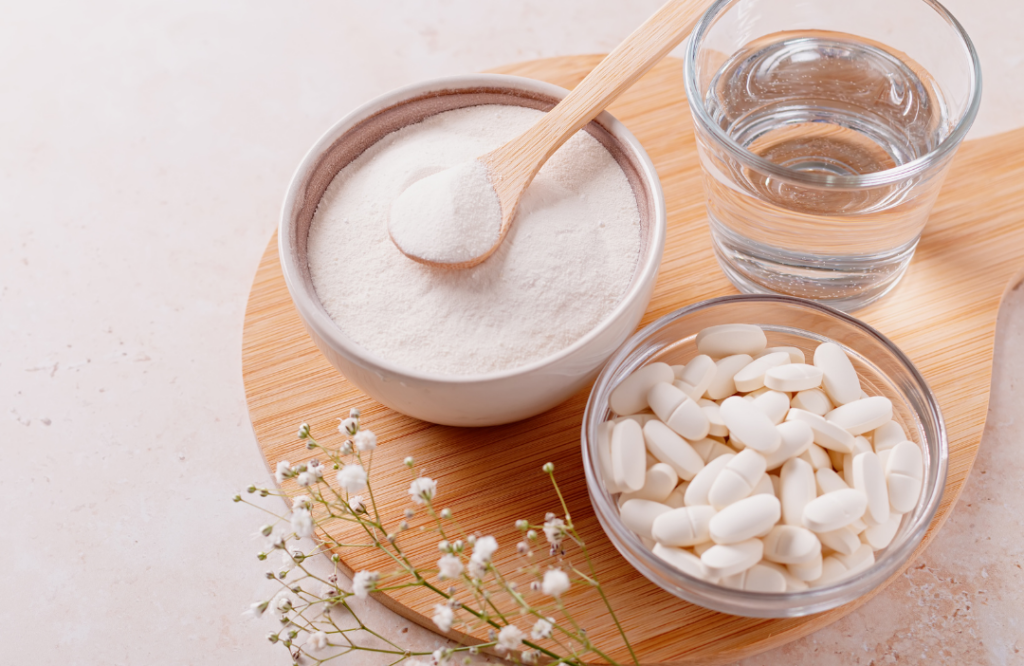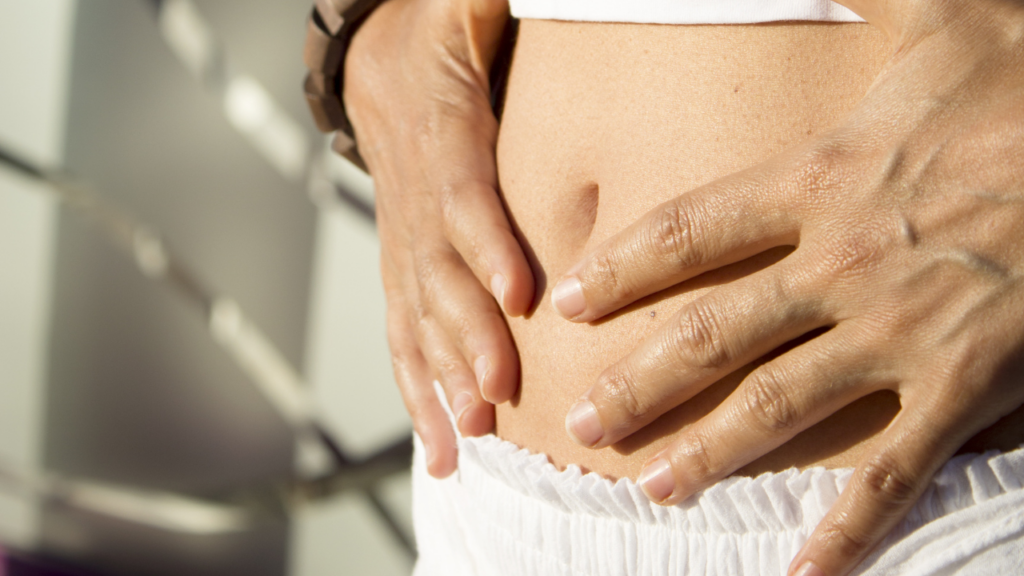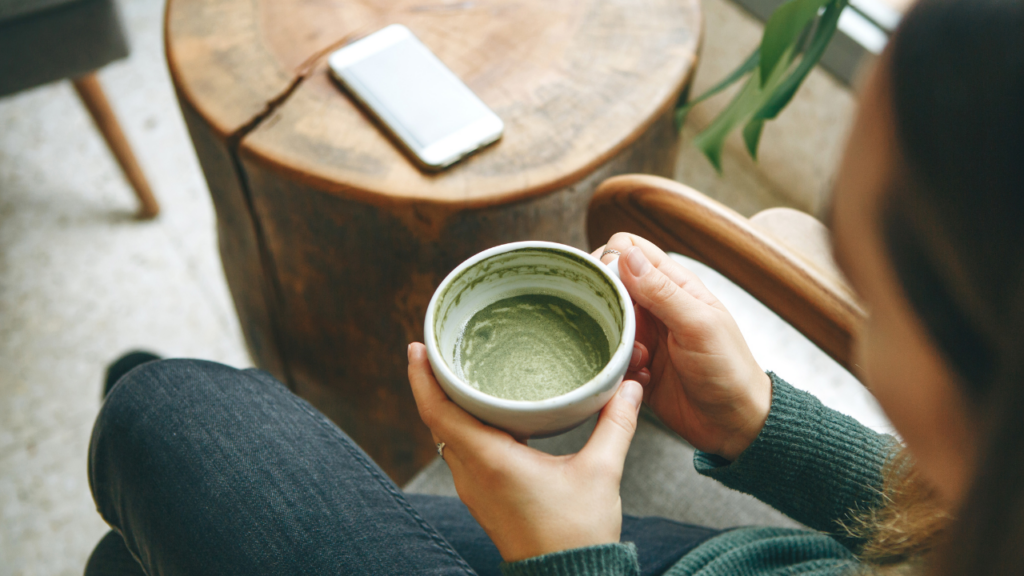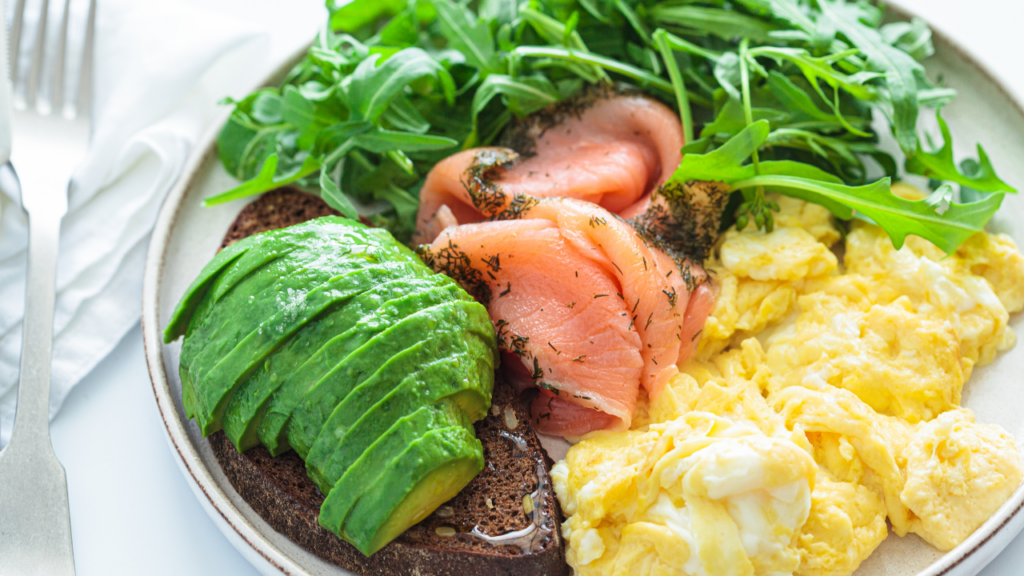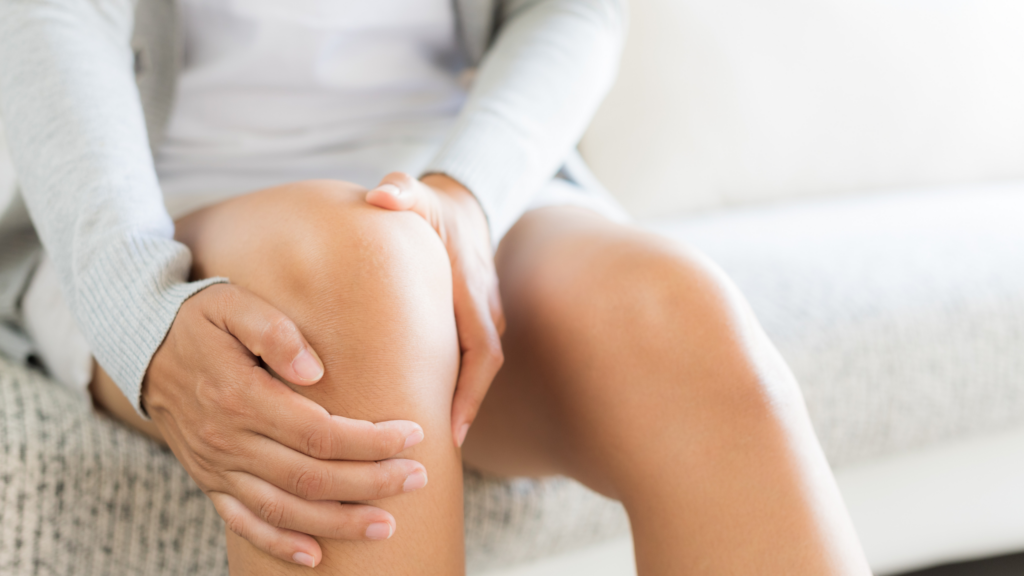Coffee Benefits and Risks, An Eastern Medicine Perspective
Published on December 10, 2014 by Dr. Caitlin Gordon
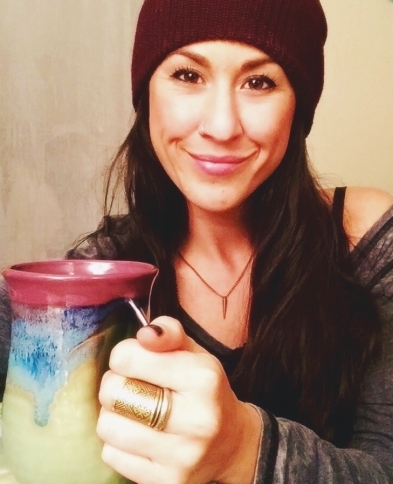 Coffee can be a controversial topic. There are clear coffee benefits and some downsides. I quit caffeine cold turkey when I switched to a vegan diet in 2008 (I do not eat vegan any longer). I remained caffeine and coffee-free for about 2 years. Before 2008, I could drink a 160z coffee at 8 pm, study for a midterm, and go to sleep 4 hours later. I started drinking some caffeine again in 2010, and in the last 4 years have maintained a caffeine habit of about 1-2x week. I am very caffeine sensitive now. If I drank a 12oz cup of coffee, I would be anxious, sweating, fidgety, and wired. I would have a lot of trouble falling asleep that night if I drank coffee after 11 am. Something changed for me chemically since my early 20s, and I simply do not tolerate caffeine like I used to. It is truly a drug now. I drink a cup of green tea, and I feel focused, productive, creative and energized. I drink 3 cups of green tea and I feel like an amphetamine addict who has convinced herself that a pimple on her face is actually a tumor and death is imminent. Okay, maybe not quite that bad, but it takes me to a dark and agitated state. If my stress or anxiety level is already high, coffee is not my friend. If I am on vacation and spending my days lounging on the beach, coffee is a sweet morning indulgence. Mental state matters and the line is fine. This fine line has given me a new respect for caffeine. I realize most people aren’t this sensitive, and some people who quit caffeine and then go back to it do not experience the sensitivity that I have. However and whenever you caffeinate, I encourage you to do so mindfully.
Coffee can be a controversial topic. There are clear coffee benefits and some downsides. I quit caffeine cold turkey when I switched to a vegan diet in 2008 (I do not eat vegan any longer). I remained caffeine and coffee-free for about 2 years. Before 2008, I could drink a 160z coffee at 8 pm, study for a midterm, and go to sleep 4 hours later. I started drinking some caffeine again in 2010, and in the last 4 years have maintained a caffeine habit of about 1-2x week. I am very caffeine sensitive now. If I drank a 12oz cup of coffee, I would be anxious, sweating, fidgety, and wired. I would have a lot of trouble falling asleep that night if I drank coffee after 11 am. Something changed for me chemically since my early 20s, and I simply do not tolerate caffeine like I used to. It is truly a drug now. I drink a cup of green tea, and I feel focused, productive, creative and energized. I drink 3 cups of green tea and I feel like an amphetamine addict who has convinced herself that a pimple on her face is actually a tumor and death is imminent. Okay, maybe not quite that bad, but it takes me to a dark and agitated state. If my stress or anxiety level is already high, coffee is not my friend. If I am on vacation and spending my days lounging on the beach, coffee is a sweet morning indulgence. Mental state matters and the line is fine. This fine line has given me a new respect for caffeine. I realize most people aren’t this sensitive, and some people who quit caffeine and then go back to it do not experience the sensitivity that I have. However and whenever you caffeinate, I encourage you to do so mindfully.
Coffee Benefits and Risks from an Eastern Medicine Perspective
Coffee is an interesting food, especially when it comes to the way it is viewed in Traditional Chinese Medicine (TCM). The dark brew is wildly popular all over the world. In fact, it is the world’s most popular drug—and caffeine is a very addictive drug. The common opinion in the TCM community is that less coffee is better and coffee depletes kidneys and yin energy. However, this has more to do with climate and constitutional factors than the general advice would imply. When is coffee beneficial and when is it harmful?
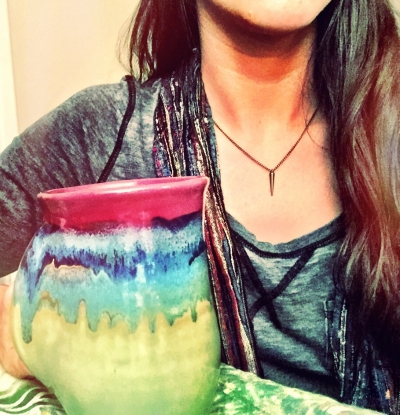
Coffee is warm, sweet, and bitter. It has a stimulating, diuretic effect and promotes elimination. The slight sweetness of coffee makes it mildly tonifying and nourishing. The primary bitter taste has the action of drying and dispersing. It can also clear heat, which helps balance out the very warm nature of coffee. This may be why it is common in some hot climate cultures to drink coffee to help the body cool down. It is a bronchodilator and increases peristalsis. It is believed that coffee also has a strong effect on the liver, due to its acrid taste and the relationship between the liver and kidneys. Coffee moves qi and blood and since the liver is the organ that becomes most stagnant, it can promote the smooth flow of liver qi in small amounts. It can also heat up the liver and cause liver yang rising in high doses. Coffee promotes sweating which helps regulate body temperature. Because of these qualities, it is great for helping with constipation, lethargy, brain fog, and even mild swelling as it drains down. It is not indicated for anyone who is already over-stimulated or experiencing symptoms of anxiety, or high blood pressure. Coffee is very acidic and should be used in moderation or avoided in people with stomach ulcers or other imbalances in stomach acidity.
Because coffee is so acidic and warming and drying it can be damaging to people whose constitutions already tend toward heat or yin deficiency. The bitter and the warmth act on the Heart and Small Intestine and will make symptoms of sweating, insomnia, anxiety, or high blood pressure worse. It is very stimulating and for this reason, can be taxing on the adrenals. Many people associate the kidney organ system with the adrenals and therefore see coffee as having a negative effect on the kidneys. Just as overwork and stress over a long period can deplete the kidney qi, so can coffee since it has a similar stimulating effect on the hormones (cortisol, adrenaline) as overwork and stress. Acidity can be damaging to the digestion as it eats at the stomach lining. Acidity is also more conducive to inflammation and cancers. Cancer cells need an acidic environment to survive and slightly alkaline internal climates tend to be more resistant to inflammation and cancer. Coffee can be brewed in various ways and combined with other foods to reduce acidity. Cold-brewed has higher caffeine content but is less acidic and harsh on the body. Using almond or soy milk helps coat the stomach lining and protect it from some of the acidity.
Who Should Drink Coffee?
When it comes to who should drink coffee and how much there are a few factors to consider. Coffee has shown in various scientific studies to be beneficial in maintaining mental faculties and even providing some protection against dementia, Alzheimer’s, and other forms of cognitive decline. That being said, the elderly are also those most likely to be suffering deficient kidney qi/yin/yang.
If coffee depletes yin and the kidneys, these individuals would need to be careful about their consumption. Coffee has a protective effect against liver cirrhosis. This is likely due to its ability to move liver qi. For yang deficient and cold individuals coffee may be therapeutic to warm the body and stimulate yang. Climate is also a factor. It is no coincidence that there are tons of coffee shops in Seattle. Cold and wet climates are particularly suited to coffee consumption as it helps keep the body in balance. Individuals who are constitutionally damp and cold may similarly benefit from warming and bitter (drying) food like coffee.
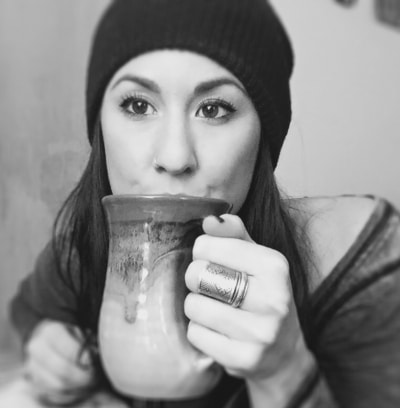
Coffee can be helpful or harmful on any given day. Take a moment to assess the state of your mind and body before deciding how much to consume. Are you feeling anxious, or on edge? Coffee might be a poor choice, as it will simply add fuel to the flame. Are you feeling a bit sluggish due to the rainy weather? Coffee might be the perfect pick-me-up to balance that out.
It is my opinion that instead of recommending that everyone eliminate or reduce coffee intake, as practitioners we should look at the context in which they are consuming coffee and offer a more personalized recommendation. If it is spring and the climate is rainy and cool, the patient has strong kidneys and perhaps is experiencing some liver qi stagnation, coffee may be very beneficial. Daily coffee for a few months could be indicated. If the patient were elderly, with weak kidneys, and a tendency to yin deficient heat during the summer months, perhaps eliminating coffee altogether would be most helpful. Young professionals drinking more than a cup of coffee a day, who feel over-stressed, overworked and on the edge of burnout should cut down their coffee consumption as coffee will accelerate their use of already minimal resources. However, overall I believe that because of the antioxidants in coffee, and the positive effects on cognition, it should be regarded as a potential therapeutic addition to the diet in moderation.
Quality counts when it comes to coffee benefits
Conventionally grown coffee is sprayed with all sorts of pesticides that end up in your mug. In fact, it is one of the most heavily treated crops in the world. The environment suffers, the farmers suffer, and you suffer when you drink that sh*t. Make a point to purchase organic, fair-trade coffee beans. Coffee beans are prone to growing mold. Storing them in an airtight container in a dark cabinet will help keep them fresh, as well as replenishing your supply frequently (don’t buy in bulk). Decaf and instant coffee also contain higher levels of mycotoxins, so steer clear. Risks from chemicals start to outweigh the coffee benefits if you are drinking low-quality coffee.
coffee is sprayed with all sorts of pesticides that end up in your mug. In fact, it is one of the most heavily treated crops in the world. The environment suffers, the farmers suffer, and you suffer when you drink that sh*t. Make a point to purchase organic, fair-trade coffee beans. Coffee beans are prone to growing mold. Storing them in an airtight container in a dark cabinet will help keep them fresh, as well as replenishing your supply frequently (don’t buy in bulk). Decaf and instant coffee also contain higher levels of mycotoxins, so steer clear. Risks from chemicals start to outweigh the coffee benefits if you are drinking low-quality coffee.
Black coffee is the healthiest way to take advantage of the coffee benefits. If you must have cream and sugar go for the healthier versions: Raw stevia, raw unfiltered honey or coconut sugar are decent choices for sweetener. Organic, carrageenan-free, non-dairy milk like almond/coconut/hemp make for good creamer. It can be helpful for blood sugar balancing and energy to add some fat like coconut oil or ghee, or even grass-fed butter. Making coffee at home ensures you have control over quality, and saves you a chunk of cash each year.
- Read more about eating seasonally to stay healthy.
- Conventional vs. Organic Coffee: Read More
The contents of this site, including text, graphics, images, and other material are for informational purposes only. Nothing contained in this site is or should be considered or used as a substitute for professional medical or mental health advice, diagnosis, or treatment. Please schedule an appointment for personalized health advice.

